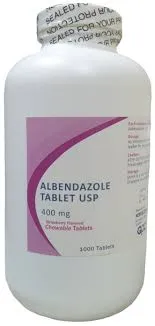- Afrikaans
- Albanian
- Amharic
- Arabic
- Armenian
- Azerbaijani
- Basque
- Belarusian
- Bengali
- Bosnian
- Bulgarian
- Catalan
- Cebuano
- Corsican
- Croatian
- Czech
- Danish
- Dutch
- English
- Esperanto
- Estonian
- Finnish
- French
- Frisian
- Galician
- Georgian
- German
- Greek
- Gujarati
- Haitian Creole
- hausa
- hawaiian
- Hebrew
- Hindi
- Miao
- Hungarian
- Icelandic
- igbo
- Indonesian
- irish
- Italian
- Japanese
- Javanese
- Kannada
- kazakh
- Khmer
- Rwandese
- Korean
- Kurdish
- Kyrgyz
- Lao
- Latin
- Latvian
- Lithuanian
- Luxembourgish
- Macedonian
- Malgashi
- Malay
- Malayalam
- Maltese
- Maori
- Marathi
- Mongolian
- Myanmar
- Nepali
- Norwegian
- Norwegian
- Occitan
- Pashto
- Persian
- Polish
- Portuguese
- Punjabi
- Romanian
- Russian
- Samoan
- Scottish Gaelic
- Serbian
- Sesotho
- Shona
- Sindhi
- Sinhala
- Slovak
- Slovenian
- Somali
- Spanish
- Sundanese
- Swahili
- Swedish
- Tagalog
- Tajik
- Tamil
- Tatar
- Telugu
- Thai
- Turkish
- Turkmen
- Ukrainian
- Urdu
- Uighur
- Uzbek
- Vietnamese
- Welsh
- Bantu
- Yiddish
- Yoruba
- Zulu
9 月 . 28, 2024 12:02 Back to list
Exploring the Benefits of Additives in Animal Feed for Improved Health and Growth
The Role of Animal Feed Additives in Modern Agriculture
In the realm of modern agriculture, the quest for efficiency, sustainability, and health has led to the widespread utilization of animal feed additives. These substances, which are incorporated into animal feed formulations, serve various purposes, from enhancing growth and improving health to preventing disease and ensuring food safety. As the global demand for animal protein continues to rise, understanding the importance and benefits of feed additives becomes essential for farmers, producers, and consumers alike.
What Are Animal Feed Additives?
Animal feed additives are substances added to animal feed to enhance its nutrient content and overall effectiveness. They can be classified into several categories, including vitamins, minerals, amino acids, antioxidants, probiotics, and prebiotics. Each type offers specific benefits that contribute to the overall health and productivity of livestock.
1. Nutritional Enhancement Feed additives often aim to improve the nutritional profile of animal feed. For instance, vitamins and minerals are crucial for the proper development, immune function, and overall well-being of animals. When natural feed ingredients fall short in these nutrients, additives can bridge the gap, ensuring that animals receive a balanced diet conducive to optimal growth.
2. Growth Promoters In the context of livestock production, growth promoters are a category of feed additives designed to enhance the growth rate of animals. Products containing antibiotics and hormones have been historically used for this purpose. However, there is a growing movement towards the use of non-antibiotic growth promoters, such as phytogenics and organic acids, which improve feed efficiency without contributing to antibiotic resistance.
3. Health and Disease Prevention The introduction of probiotics and prebiotics in animal feed has revolutionized animal health management. Probiotics introduce beneficial bacteria into the gut, enhancing digestion and nutrient absorption while also helping to prevent gastrointestinal diseases. Prebiotics, on the other hand, provide the necessary nutrients for these friendly bacteria to flourish, boosting the overall gut health of livestock.
animal feed additives

4. Food Safety The safety of animal products is a paramount concern for consumers and regulatory bodies alike. Feed additives such as antioxidants and mycotoxin binders play a critical role in preventing spoilage and toxicity in animal feeds. Antioxidants inhibit the oxidation of fats and oils in feed, while mycotoxin binders reduce the risk of harmful toxins produced by molds in feed ingredients, ensuring that animals receive safe and high-quality nutrition.
Environmental Sustainability
The use of animal feed additives also presents an opportunity for more environmentally sustainable livestock production. By improving feed conversion rates and overall animal performance, additives can reduce the amount of feed required per unit of animal product. This not only lowers feed costs for farmers but also decreases the environmental footprint associated with feed production, including land use, water consumption, and greenhouse gas emissions.
Regulatory Considerations
Despite their benefits, the use of feed additives is subject to regulation in many countries. Authorities such as the U.S. Food and Drug Administration (FDA) and the European Food Safety Authority (EFSA) closely monitor the safety and efficacy of these substances to ensure they do not pose risks to animal health or food safety. This regulatory framework ensures that only safe and effective additives make their way into the animal feed supply.
Conclusion
Animal feed additives are an indispensable component of modern livestock management. They enhance the nutritional value of feed, promote animal health, and contribute to the sustainability of agricultural practices. As the global population continues to grow, the role of these additives will likely become even more critical in meeting the increased demand for animal-derived protein. By balancing economic interests with health and environmental considerations, the responsible use of animal feed additives can help pave the way for a sustainable future in agriculture.
-
The Power of Radix Isatidis Extract for Your Health and Wellness
NewsOct.29,2024
-
Neomycin Sulfate Soluble Powder: A Versatile Solution for Pet Health
NewsOct.29,2024
-
Lincomycin Hydrochloride Soluble Powder – The Essential Solution
NewsOct.29,2024
-
Garamycin Gentamicin Sulfate for Effective Infection Control
NewsOct.29,2024
-
Doxycycline Hyclate Soluble Powder: Your Antibiotic Needs
NewsOct.29,2024
-
Tilmicosin Premix: The Ultimate Solution for Poultry Health
NewsOct.29,2024













